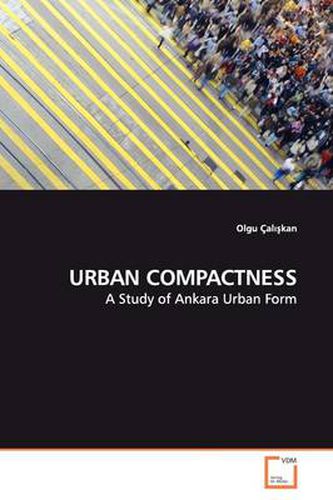Readings Newsletter
Become a Readings Member to make your shopping experience even easier.
Sign in or sign up for free!
You’re not far away from qualifying for FREE standard shipping within Australia
You’ve qualified for FREE standard shipping within Australia
The cart is loading…






This title is printed to order. This book may have been self-published. If so, we cannot guarantee the quality of the content. In the main most books will have gone through the editing process however some may not. We therefore suggest that you be aware of this before ordering this book. If in doubt check either the author or publisher’s details as we are unable to accept any returns unless they are faulty. Please contact us if you have any questions.
Since the last decade of the century, the ongoing search for a model of sustainable urban form has given way to an old new idea: compact cities. With the emergence of a new consciousness of urbanism, a clear argument that compactness is an essential feature of urbanity has gained validity. The vision of compact urban form, similar to those seen in early phases of human history, may seem to be just a nostalgic reaction to late-modern urbanism. Yet a close look at compact city models allows us to demonstrate the real performance of the concept in a spatial context like in terms of mobility. ‘Urban Compactness’ is an attempt to cover all relevant aspects of the compact city policy from early modern urbanism until today, amidst the ideological antagonism between centrism and decentrism. Relating the question of compact urban form to its historical, social, and political background, the book offers a broad framework on the issue to be discussed in the case of the master planning history of Ankara, the capital city of Turkey. This book is for all readers who are interested in urban policy and design in relation to the basic formational characteristic of cities: urban compactness.
$9.00 standard shipping within Australia
FREE standard shipping within Australia for orders over $100.00
Express & International shipping calculated at checkout
This title is printed to order. This book may have been self-published. If so, we cannot guarantee the quality of the content. In the main most books will have gone through the editing process however some may not. We therefore suggest that you be aware of this before ordering this book. If in doubt check either the author or publisher’s details as we are unable to accept any returns unless they are faulty. Please contact us if you have any questions.
Since the last decade of the century, the ongoing search for a model of sustainable urban form has given way to an old new idea: compact cities. With the emergence of a new consciousness of urbanism, a clear argument that compactness is an essential feature of urbanity has gained validity. The vision of compact urban form, similar to those seen in early phases of human history, may seem to be just a nostalgic reaction to late-modern urbanism. Yet a close look at compact city models allows us to demonstrate the real performance of the concept in a spatial context like in terms of mobility. ‘Urban Compactness’ is an attempt to cover all relevant aspects of the compact city policy from early modern urbanism until today, amidst the ideological antagonism between centrism and decentrism. Relating the question of compact urban form to its historical, social, and political background, the book offers a broad framework on the issue to be discussed in the case of the master planning history of Ankara, the capital city of Turkey. This book is for all readers who are interested in urban policy and design in relation to the basic formational characteristic of cities: urban compactness.